Common Resume Writing Mistakes To Avoid
Are you curious why your resume isn't landing you any interviews? We're confident in saying it's not because you're unfit or not good enough. It's likely because resume writing mistakes are generating one or more significant problems.
The first chance you get to create a good impression on a hiring manager may be through your resume. Hiring managers evaluate your qualifications for a position before meeting you by using the information in your resume. It helps them to learn more about your training, work history, and abilities.
Creating a well-written, understandable, and carefully designed resume is an important step in getting an interview. Job searchers must present their skills and experience to prospective employers in a professional and effective resume.
Yet, a lot of candidates make resume writing mistakes, which leads to them having an unprofessional resume. This decreases their chances of landing an interview or a job opportunity. In this article, we'll discuss bad resume examples and resume writing mistakes to avoid so you can land the job of your dreams.
- Bad Spelling and Grammar
One of the resume writing mistakes for getting a resume rejected is poor grammar and spelling errors. Employers will simply assume that you don't care enough about the position, if you submit a CV that has many grammatical errors.
Who would consider you to perform the duties of a full-time job if you can't be bothered to write correctly your resume? Read your resume maybe once or twice, or perhaps have someone else look it over, to avoid making these common resume writing mistakes.
- Unimpressive Resume Summary
The career summary of many applicants quickly loses the hiring manager's attention. Buzzwords like "go-getter," "eager for success," and "self-starter" are frequently seen on resumes and are an instant turnoff for hiring managers. Although these words sound intimidating, they say very little about the experience and skills of the individual.
Therefore, a candidate must avoid making these resume writing mistakes. Provide companies with information that is specific. More significantly, focused on both your personal needs and those of the employers.
- Poor Work Experience Section
The work experience portion of your resume is likely the most crucial section of your resume. It is because it may successfully show that you have the education and training necessary for the position. But, just describing your job duties won't be enough for that to happen. Instead, your resume needs to be as full of achievements that can be supported by facts and numbers.
Using imprecise language like "responsible for" or "tasked with" to describe your previous work without providing specifics about your accomplishments doesn't say much about your skills and experience.
A strong experience section on a resume, however, focuses on the details of your work. It also emphasizes what you achieved in your former role using a combination of hard data and action verbs. Making resume writing mistakes in this section can impact your job interviews severely.
- Unprofessional Fonts
Any hiring manager will be turned off by unprofessional and difficult-to-read fonts. Decorative fonts also make it more difficult for a software application to process your resume, increasing the likelihood that it will be rejected. A resume's appearance might be ruined by making this resume writing mistake. Choose Arial or Times New Roman as your primary typeface and maintain the same font size throughout your resume.
- Visually Too Busy
Graphics that are unnecessary or distracting are a simple way of making your resume seem unprofessional. Fancy graphics distract from your resume's objective of properly describing your talents and achievements, even if you believe they look good.
Additionally, visuals might become a severe issue when applying to businesses that employ software to automatically scan through job applications, sometimes known as an applicant tracking system (ATS). Your application will probably be rejected before a recruiter even sees it if a company's applicant tracking system (ATS) cannot process the graphics on your resume.
To avoid making these resume writing mistakes, make your resume clean, professional, and simple to read, therefore limiting the use of graphics. If you operate in a profession that requires additional formality, such as law or accounting, this is especially crucial.
- Making it too long or too short
The next bad resume writing example is too long or too short resumes. Your resume should not be more than one page unless you have over 5 to 10 years of really relevant professional experience. Also, a lot of people attempt to compress their experiences onto a single page since they have heard that resumes shouldn't be any longer than one page. Job seekers can remove noteworthy achievements by doing this.
Some candidates babble on about experiences that are unnecessary or irrelevant. In general, you should keep your document to a maximum of two pages. But, if one page will do, don't feel compelled to use two. On the other hand, avoid trimming your resume to make it fit an arbitrary one-page guideline.
- Using passive language
Passive-voiced resumes can be tiresome to read, overly wordy, confusing, and, worst of all, result in a room of prepositional phrases. Use an active voice and enticing action words for a better impact. These phrases not only highlight your initiative but also add more energy to the resume's general tone.
- Lying about skills and job achievements
Lying during the interview or after you have been employed about your skills and career achievements may backfire on you. Hence, to avoid being fired or having your reputation damaged, always be accurate and truthful in your resume. This is another bad resume-writing example that completely ruins the professional image of a candidate and hence, should be avoided at all costs.
- Irrelevant or expected skills
Instead of mentioning all of your abilities and competencies, only include those that are most relevant, advanced, and useful. For instance, you don't need to highlight the fact that the majority of employees in any business are familiar with email, word processing, and web searches.
- Including poor grades
The last bad resume writing example is including grades less than 90%. It may look like you are not a strong fit for the job if you list poor scores on your resume. But, not all of your scores should be mentioned, especially if they are poor. It's crucial to think about whether the scores you do mention demonstrate your suitability for the position. You don't have to mention your scores unless the recruiting managers ask for them.
CONCLUSION
You should make every effort to appear professional and well-organized when writing your resume. This includes avoiding making resume writing mistakes that could reflect poorly on your profile. We hope this article will help you to prepare for your future endeavors. Good luck!








